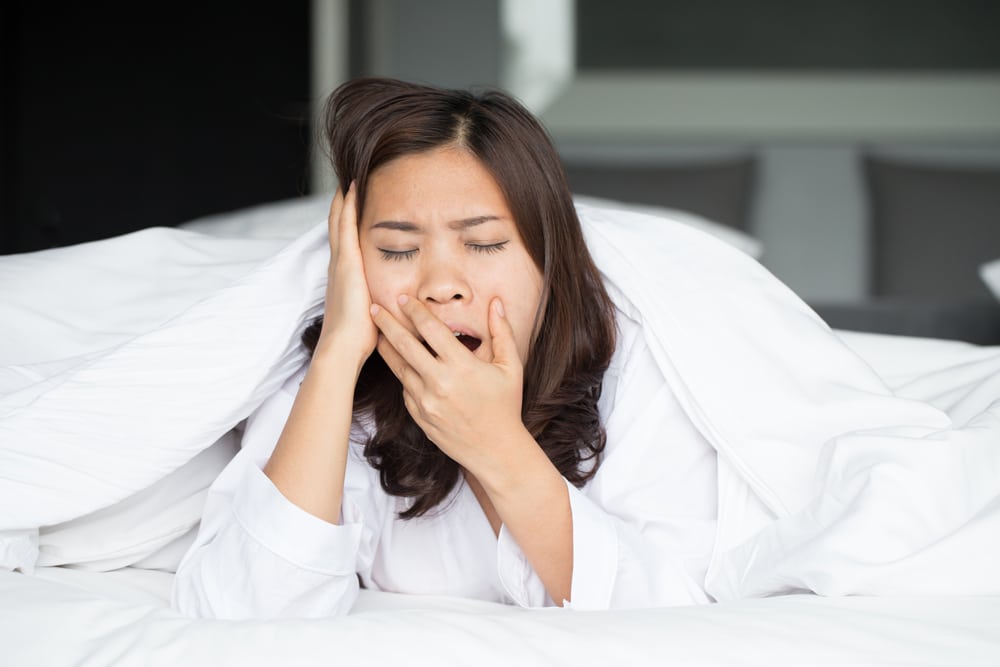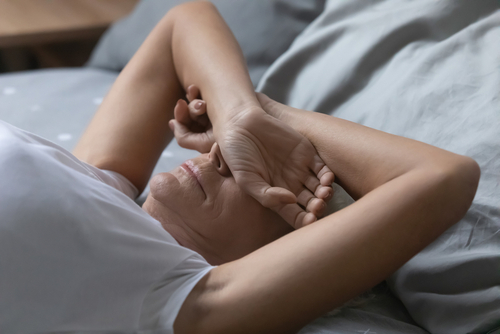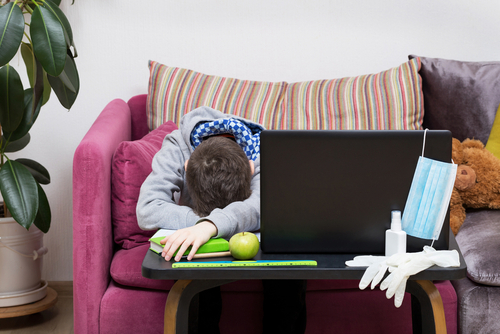The Sleep Site is all about providing information and tips on sleep and helping you to get to sleep easily at night and wake up feeling refreshed in the morning.
My belief is that perfect sleep starts in the morning , rather than at night. In our modern 24/7 lifestyle our time first thing is often the only part of the day we can fully control. By creating a consistent healthy morning routine we can set our body clock up with a solid foundation for getting to sleep more easily in the evening
Start by setting up your day correctly first thing in the morning and you will literally give yourself the best chance of getting to sleep more easily in the evening.
Here are my ten morning steps for sleep success…
1) Set the alarm for the same time 7 days a week
Our body clock or circadian rhythm is naturally set to have the same wake up time , give or take, every day – cavemen didn’t have jobs or school runs ! If you get up later at the weekends, to catch up on lost weeknight sleep, this in fact creates an effect, which is now termed ‘social jet lag’. Social jet lag mimics the effects of the traditional jet lag we get when we travel through different time zones, disrupting our body clock and making it a lot harder to get to sleep at night. Ideally, we would have the same sleep time each night too but this is often not possible 7 days a week. If you have a late night, catch up with short naps in the day rather than making up for lost sleep at the weekend.
2) Sleep in cycles not hours
We now know that we sleep in 90-minute cycles. Each cycle starts with light sleep, then deep sleep and ends in Rapid eye movement (REM) sleep when we dream before we go back into the next cycle. If we wake up in a deep sleep part of sleep, we end up feeling groggy. Therefore, it is always best to try to get up at the end of a full sleep cycle. By tweaking your sleep time, you should be able to get to a point when your alarm wakes you at the end of a full cycle.
3) Get out of bed straight away. Don’t use the snooze button!
Most sleep specialists advise not to use the snooze button, as it confuses the brain creating sleep inertia. After the first alarm goes off, and hitting the snooze button, your brain settles back down to sleep/snoozing. Upon the second alarm, the brain is not sure whether you are going to wake up or not, as the alarm signal has been initially attached to a ‘snoozing state’. When you eventually get out of bed you often feel fuzzy headed, in a state of sleep inertia.
4) Try to wake up without an alarm
Once you have locked in the first three steps, you will be ready to wake up refreshed every morning without the use of an alarm. Prehistorically our days would have been limited by sunlight, and we would gone to bed in the dark, waking up in daylight at roughly the same time each day. Our circadian rhythm or body clock, which regulates all the systems of the body, is therefore naturally set to work in this way, with light, or the absence of light, it’s main regulator. Your body is perfectly designed to wake you up when you have had enough sleep . Therefore, waking up without the use of an alarm is ‘best practice’ as far as ‘sleep hygiene’ is concerned.
5) Make it as light as possible
Getting daylight in the morning makes it easier to get to sleep at night, as is strengthens our circadian rhythm. Get sunlight in your bedroom straight after you wake up , as this sends a signal to your brain to increase your production of serotonin (the wake up and feel good hormone) and boosting cortisol production which gets your body going. Cortisol levels rise in the first half hour after you wake and signals the body to become more alert. Sunlight has another benefit in that it helps us to produce vitamin D. There is a strong link between vitamin D and preventing daytime sleepiness.
6) Eat a good breakfast
Prehistorically, we would have tended to fast in the dark and eat in the daylight, with ‘breakfast’ literally the time we broke our nightly fast. In fact, we have a body food clock that is linked to our sleep clock in our brains and ideally, we should have breakfast within 30 minutes of waking.
7) Drink water and not coffee or tea with your breakfast
We all lose water over night through sweat and therefore wake up dehydrated. Water is by far the best drink to have first thing, as it instantly hydrates you. You can then maintain this hydration through the day, which aids good sleep. However, tea and coffee are diuretics, which encourage you to lose water through urination. What’s more, if you drink caffeine first thing you are putting a pick me up on top of your body’s peak level of cortisol production, which is already working to wake you up naturally its own right. Reserve your caffeine intake for one hour after you wake, after the cortisol peak to give you the ideal mid-morning boost. Then stop your caffeine intake after lunch to prevent it keeping you awake at night.
8) Get outside and exercise in the morning
Exercising outdoors in the morning is the perfect start to the day, as it improves your sleep quality and quantity, boosts your daily intake of sunlight and keeps you fit at the same time.
Vigorous exercise is regarded best for sleep and at least 20- 30 minutes of activity a day helps. If you don’t fancy this walk outside for 15 minutes every morning instead.
9) The Curse of Technology
All sleep specialists will advise you to only use the bedroom for sleep and sex and keep all technology out of the bedroom. If you can’t be persuaded to follow these guidelines, my recommendation is to always charge your phone outside of your bedroom over-night. Then, rather than using your mobile as your alarm clock, get yourself a dawn simulator alarm instead. This gentle alarm awakens you cleverly with light and allows you to avoid your phone until after breakfast. Then check your emails on the way to work rather than in your own time. This gives you the perfect gentle start to the day.
10) Finally use a short morning meditation to set up each day
A short meditation session in the morning can help you cope with the pressures ahead, by centering you. I use an adaptation of the ‘serenity prayer’ to help me keep the tasks and deadlines of the day right-size and manageable. I focus on separating things that I have control over (my reaction and motivation), from the things that I have no control over (ever changing deadlines, and the reactions of others). I can then look at what is really achievable within the 24 hour period, let go of what can’t be done and accept that I can’t do it all whilst maintaining a healthy balance between work, rest and play. This seems to keep any problems in the day proportional. As a result, when I get to the end of the day, I am more likely to have accumulated less stress from the tasks and deadlines, which seemingly stacked up and could never have been achieved in 24 hours anyway.
I hope these 10 morning tips will help you get a great start to the day to achieve sleep success!









